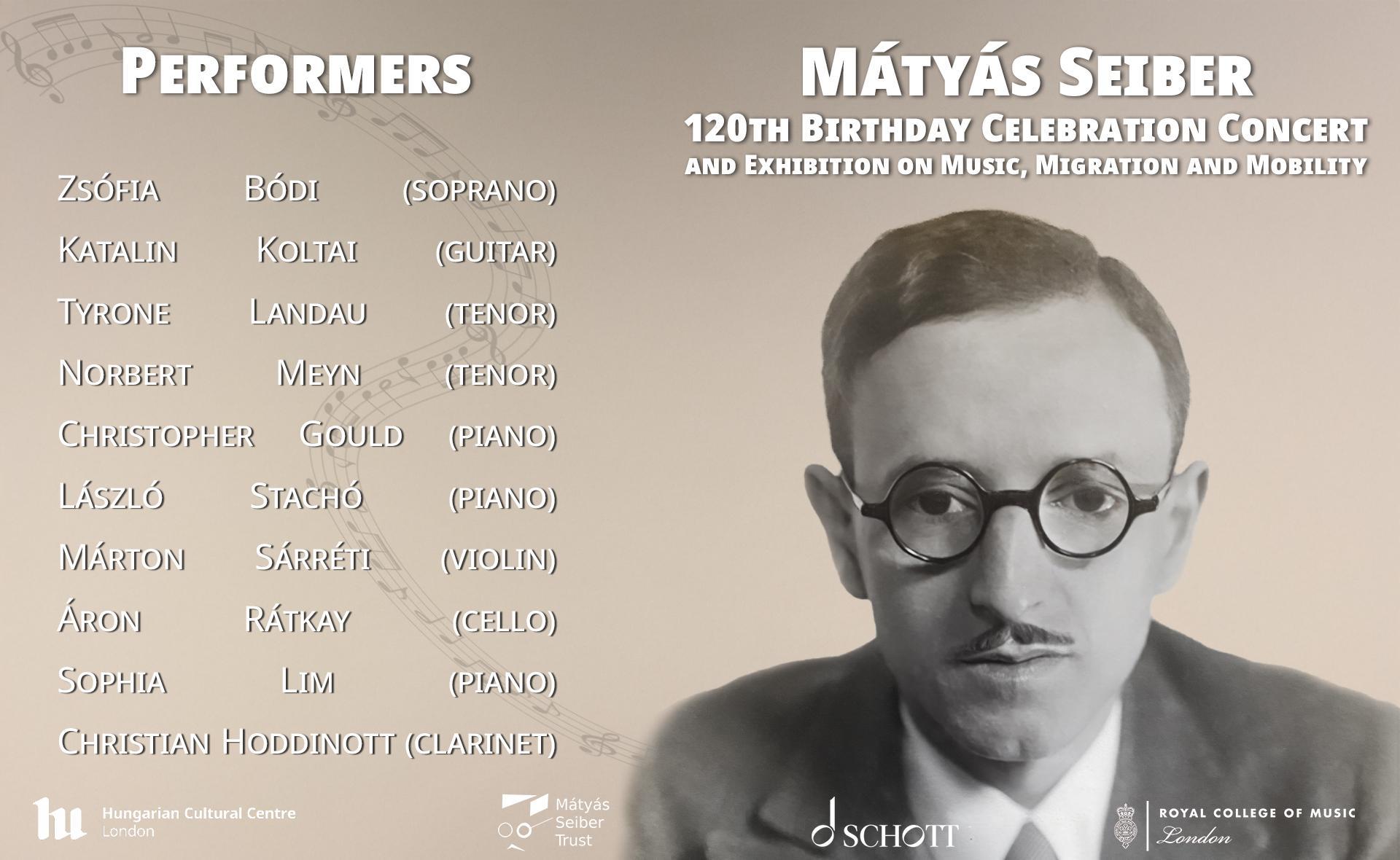This year we celebrate the 120th anniversary of the composer Mátyás Seiber’s birth. To mark the occasion and honour the composer, the Hungarian Cultural Centre London (Liszt Institute) is hosting a series of events, supported by the Mátyás Seiber Trust, the Royal College of Music and Schott Music London.
Prior to the event series, we will organise a two-day private masterclass for students of the Liszt Ferenc Academy of Music and the Royal College of Music, led by László Stachó (Liszt Academy, Budapest) and Norbert Meyn (Royal College of Music, London). The masterclass will be followed by an exhibition, a panel discussion and a concert.
Detailed programme - 4th May 2025:
- 2 pm: doors open for the Exhibition ‘Mátyás Seiber and the Legacy of Émigré Musicians from Nazi Europe in Britain’ (curated by Norbert Meyn, Royal College of Music)
- 3 pm: Panel Discussion with the composer’s daughter Julia Seiber Boyd and Florian Scheding (University of Bristol)
- 4 pm: Celebratory Concert with outstanding pieces of chamber music and vocal music, including the world premiere of Seiber’s recently discovered ‘Minnaloushe’ Songs for voice and guitar and a screening of the iconic Halas & Batchelor animation film The Owl and the Pussycat with live music. The concert brings together professional musicians who have championed Seiber’s work with student musicians from the Liszt Academy of Music (Budapest) and the Royal College of Music (London), who will be working together in a masterclass with László Stachó and Norbert Meyn.
About the exhibition:
- Opening: 2 pm 4th May 2025
- On view: 5th–10th May, 3 pm – 6 pm
The exhibition will present photographs, manuscripts, concert programmes and memorabilia as well as the Royal College of Music’s mobile display ‘Music, Migration, and Mobility’, which highlights the importance of Seiber and his fellow émigré musicians from Nazi Europe in Britain.
About Mátyás Seiber:
Mátyás Seiber (1905–1960) had a truly European career across Hungary, Germany, and Britain, where he lived after 1935 as a successful composer and influential teacher. Many of his compositions such as his Leichte Tänze for piano, his Jazzolettes, his modernist chamber music, his ‘nonsense songs’, his choral and orchestral works, and his film music for the popular 1952 animation film Animal Farm have remained popular to this day.
One of the favourite students and a lifelong friend of Zoltán Kodály, Seiber moved to Germany in 1928 and taught Jazz at the Hoch Conservatoire in Frankfurt before being expelled by the Nazis in 1933. In Britain, he composed tonal and atonal chamber music, choral and orchestral works as well as folk song arrangements, light music, and film music – for many prominent soloists including Dennis Brain, Julian Bream, Tibor Varga, Max Rostal and Peter Pears. He was a member of the International Society for Contemporary Music and a founding member of the Society for the Promotion of New Music in Britain. Regarded as one of the foremost composition teachers in the UK, he attracted many pupils from around the world – whom he taught from home in Caterham. He also taught part-time at Morley College from 1942 onwards.

